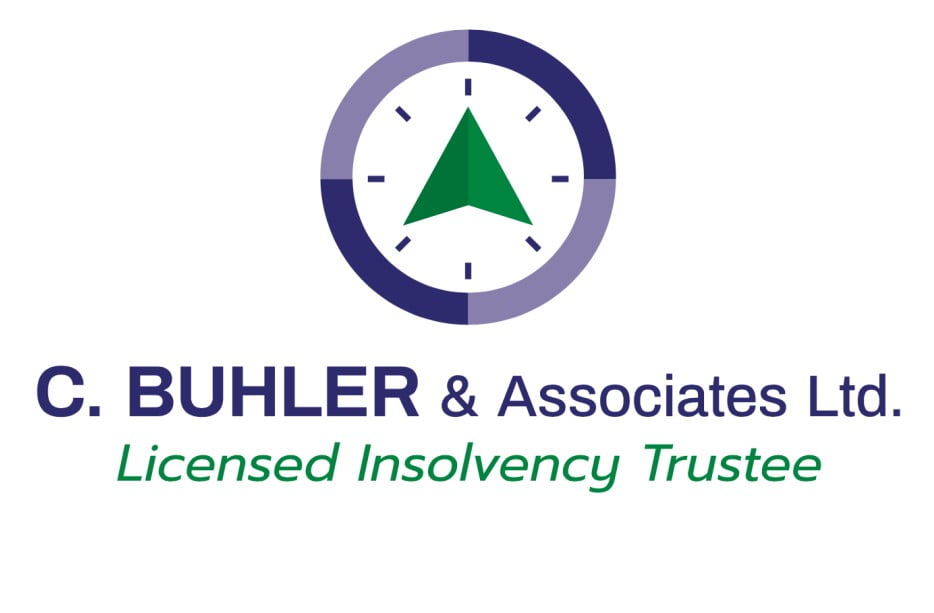Dealing with debt can be different in different communities. We speak to Crystal Buhler, a Licensed Insolvency Trustee with Debt Free North about how deal with debt differs in more remote communities. Click here to listen to the full episode.
Bruce: I am the CEO of the organization, and we are Canada’s longest standing nonprofit credit counseling agency. Our mission is to help people get out of debt so they can get back into life.
Listen, debt is a brutal reality for millions of Canadians. It starts to pile on for lots and lots of different reasons: job loss, divorce, illness, bad luck, you name it. Our accredited credit counselors are available to help you understand your current financial situation and take you through all your options on how to move forward, and there really are options out there. So go to creditcanada.com. We are nonprofit. As I said, the counseling is free and judgment free.
Everyone’s experience with debt is unique. And when it comes to getting rid of it, what might work for one person just might not work for someone else for a whole bunch of reasons, including, get this including where you live. Crystal Buhler from Debt Free North is a licensed Insolvency trustee who works with many clients who live in Canada’s North. Crystal joins us now to talk about dealing with debt in some of the more remote communities in this country.
She is in Brandon, Manitoba.
Bruce: Hello there.
Crystal: Hi, Bruce.
Bruce: You were based in Manitoba. Why did you decide to focus on the North?
Crystal: Yeah, so we’re based in Manitoba and I grew up in rural farming, Manitoba. And I have always been treated as a bit of an outsider from some of these larger centers.
When I looked at starting our practice and realized that Canada’s North had been somewhat underserved, we definitely thought it was a good region to focus on. We’ve really connected well with the individuals there. And, yeah, definitely a service that we felt that they were lacking up there.
Bruce: I am lucky enough to have been to the north many times over my life, and it’s a place of extraordinary beauty. I have only been there in the warmer months, so it is also a place with some real hardship. And I don’t just mean weather, there are challenges there. We’re going to look at this from the perspective of the good, the bad, and the ugly. Your phrase there. What is good about living in the north when it comes to finances and debt in particular?
Crystal: One of the first things I learned is that many Northerners have good, stable, and very well paying jobs. There’s a lot of government jobs up there, whether it’s with territories or with the territories itself or offshoots thereof. So they have benefits, they have pensions, they’ve got great work from home policies in the Covid era. They have a lot of job security and better pay than Southern individuals, at least in my experience.
Bruce: And so that’s pretty good, in addition to the fact that it’s so glorious there. There is that, like the offset of those great jobs and the well paying jobs for those who have them. And not everybody does, but for those who do is it is incredibly expensive. The cost of living in the north is through the roof. You gave us this example of Internet services.
Crystal: Yeah. We’d make it part of our practice to monitor some of the costs of living up north, so definitely the cost can be crazy. The basics, things like groceries, cell phone service, and like you said, Internet service can be exponentially more than those same services. I like to compare Internet packages in NWT, which is the North West Territories. So the government of NWT reports that there’s two providers that presently provide like, the best package or the highest fastest service right in Yellow Knife, which is the capital of NWT, that service costs $239. And comparatively, here in Manitoba, even in rural Manitoba, that same exact package costs $149, so significant difference.
Bruce: Yeah, that’s a big difference. And that goes for fuel and produce etc. So if that’s the bad, then there is the ugly. And I will not make light of some of the challenges that people living in the north face. Can you give us some examples?
Crystal: Absolutely. Anecdotally we see that addictions are found at a much higher concentration for our clients in the north. We find it difficult to find accurate statistics because of the small population sample size. But again, that’s not meant to minimize in any way their challenges that they do face. Access to treatment and services generally means that folks have to leave their remote communities and travel to Southern locations, be at Edmonton, Ottawa, wherever they can get to. That’s not overly helpful for those who are seeking family connection when they’re dealing with difficulties like addictions. Definitely a challenge for those up north.
Bruce: There is a high proportion of Indigenous people living in the north. What is the legacy of residential schools and the harm that it caused as it relates to money and to debt?
Crystal: It’s definitely evident. As we know, those historical challenges that are faced by Indigenous persons have not gone away. I’ll be the first to admit I’m not an expert in this topic, but I’ve learned that by doing my job and that I’ve been watching over the last few years. The more I understand about the challenges, the more that I don’t know. I did find it interesting that the 2016 census identified that just over the half of the population of NWT identifies as either First Nations Meteor, Inuit, or a combination of those identities. So definitely there’s major financial challenges faced by the Indigenous Canadians. It’s been documented, it’s been reported, and definitely still an area of concern.
Bruce: So as you look at this client base, people who are dealing with debt that they cannot manage, what are some of the solutions? What are some of the pieces of advice that you provide that account for the circumstances in which they live?
Crystal: Well, definitely we talk about different financial options that exist for those dealing with debt. We speak to things like budgeting where possible. I mean, obviously some of the significant costs up there cause us to adjust, for example, percentages. They generally spend a lot more of their income proportionately on basics: rent, like I said, internet, cell phone, the things that are necessary to maintain connectivity. So we’ve adjusted our budgeting techniques when we speak with them about those.
Also you’ll find some different solutions than we have here in the south. I was surprised when I first went up there that I’m going to say communal living, but I don’t mean in a large sense. I mean folks who have roommates, three, four, five young professionals living together in a home is extremely common up there just to make the rent affordable. So we talk about adjusting the situation for that. And then those dealing with actual significant debt issues that can’t be resolved. We talk about, of course, consumer proposals, bankruptcies if need be, but we find again with those good stable jobs, well paying jobs, that a lot of people are opting for consumer proposals and able to manage their debt that way.
Bruce: Because of how spread out your client base would be, did you find it by comparison to LIT’s, license insolvency trustees who served urban centers, that it was easier for you to go to remote? Were you already remote in many ways?
Crystal: Personally, I’ve always enjoyed connecting with individuals, even pre-Covid, who weren’t located in theese larger centers. So I’ve practiced from Brandon, Manitoba, which is the second largest center in Manitoba. I’ve dealt with individuals who lived in these small communities of 2000-3000 people in rural Manitoba. And Manitoba actually itself has quite a large northern population above the 53rd parallel. There’s a significant proportion of our population that lives there and so we’ve always kind of catered to that. We find that especially the extreme northern residents are very tech savvy. They’re fairly young as well. Yellowknife’s average age is in the mid thirty’s. And so it really is not difficult to connect with these people. And they’re used to doing business at a distance and we’ve really appreciated that and taken advantage of it, frankly.
Bruce: You referenced the consumer proposal. This is something that we’ve talked about a lot on the show, but I think it bears repeating. What are some of the circumstances that would have an individual seriously consider a consumer proposal? And I think it’s important that we continue to reiterate the breadth of solutions out there for people who are dealing with a level of debt that they can’t manage. A credit candidate would be a debt consolidation program for license insolvency trustees. It would be a consumer proposal or a bankruptcy filing. But tell us what the essence of the consumer proposal is and for our listeners who are dealing with debt, what should they check to see if whether or not this fits for them?
Crystal: A consumer proposal, really, like you mentioned, one of the options that a licensed insolvency trustee can help with, they’ll settle that. They’ll either reduce the principal, the interest, and sometimes in certain cases, they can reduce both. Ultimately, it is a legally binding agreement between a debtor and their creditors that allows them to stretch their payments over a five-year period at a payment that can be afforded by the debtor even if it doesn’t actually pay the debt in full. Creditors are generally incentivized. Or they would be interested in accepting a consumer proposal, so long as it offers them more than if that same person chose to file a bankruptcy. And so it makes sense, both from a debtors point of view, reducing their payments, putting it on a predictable payment plan, but also from the creditors point of view. It generally gives them more than they would get in the bankruptcy.
Bruce: Crystal, thank you for joining us today.
Crystal: Thank you so much, Bruce.
Bruce: I appreciate you chatting with me about our folks up north. Crystal Buhler is with C. Buhler & Associates Ltd. She is a licensed insolvency trustee and her focus is Canadians who live in the gorgeousness of Canada’s north.





